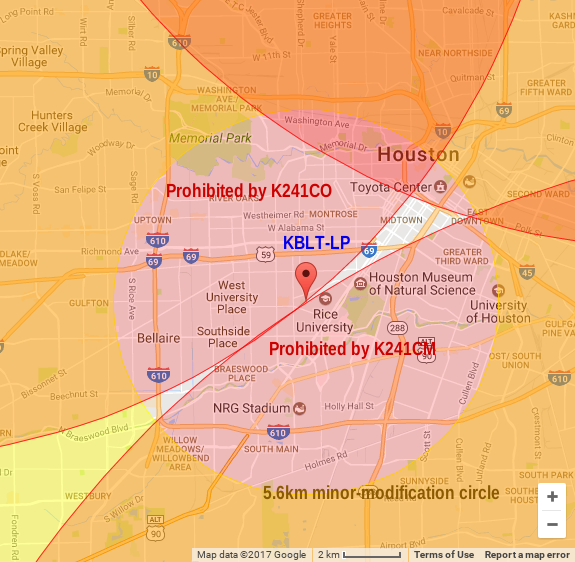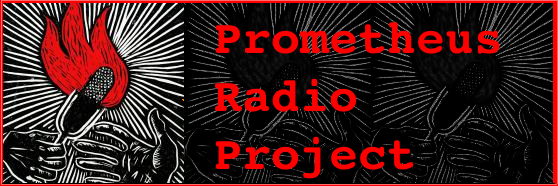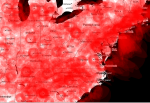Translators
FCC THREATENS TO REMOVE INDIVIDUAL RIGHT TO COMPLAIN ABOUT INTERFERENCE ON THE FM BAND
 JULY 15, 2019
JULY 15, 2019New rulemaking silently impacts the right to hear local FM radio without harmful interference
LFPM Coalition files Comments in Translator-interference Proceeding
 August 6, 2018
August 6, 2018
An Ad-hoc LPFM Coalition today filed comments in reply to an FCC request concerning how FM Translator interference is defined and processed, which is potentially very important to LPFM stations. Comments by all parties may be found in the FCC's ECFS system.
LPFMs Boxed in by New AM Translators
 With the conclusion of the recent new-translator window held for class C and D AM stations, here are a few statistics about applications for new translators which would box in in LPFM stations, plus lists of stations and translators affected by short spacing.
With the conclusion of the recent new-translator window held for class C and D AM stations, here are a few statistics about applications for new translators which would box in in LPFM stations, plus lists of stations and translators affected by short spacing.
- 1081 new translator facilities applied for
- 67 new translators are too close to one or more LPFMs
- 81 LPFMs are short spaced by new translators
- 15 new translators are short spaced to more than one LPFM
- 3 LPFMs are too close to more than one new translator, which can really box them in.
Prometheus Petitions FCC to Protect LPFMs from Big-AM-Station Translators
For Immediate Release
April 17, 2017
PHILADELPHIA-- The Prometheus Radio Project is challenging an FCC handout to the biggest AM stations because it will harm low-power FM (LPFM) stations without affording them protections guaranteed under the Local Community Radio Act (LCRA). Last week, Prometheus filed a petition with the FCC seeking reconsideration of new rules released in January that allow the largest commercial AM stations to place more FM translators near LPFM stations.
Clearing the Airwaves: Next steps in processing pending translator applications
January 2013
In late 2012, the FCC announced that they would begin accepting applications for new low power stations on October 15, 2013. At last! But we know that the FCC's predictions on timing aren't always set in stone (to put it mildly). So what are the steps ahead before the FCC can accept new applications for community radio stations?
The biggest task ahead is that the FCC must deal with a backlog of pending applications for FM translators. These are repeater stations that extend the signal of existing radio stations. This is the issue most likely to affect the timing of the low power radio filing window.
Thousands of translator applications have been on hold at the FCC since 2003. To save room for low power radio stations in urban areas with limited spectrum, the FCC will be dismissing many of these translator applications.
The Trouble with Translators
March 29, 2012
What are translators, and what do they have to do with community radio?
Free Speech Radio News: "FCC opens up more space for low-power FM stations"
Free Speech Radio News: "FCC opens up more space for low-power FM stations"
http://fsrn.org/audio/fcc-opens-more-space-low-power-fm-stations/10027
03/22/2012
Radio Survivor: "Reactions to the FCC’s LPFM ruling"
Radio Survivor: "Reactions to the FCC’s LPFM ruling"
http://www.radiosurvivor.com/2012/03/22/reactions-to-the-fccs-lpfm-ruling/
March 22, 2012
Release: FCC Decision Opens Radio Airwaves for Communities Nationwide
FCC Decision Opens Radio Airwaves for Communities Nationwide
New rules create opportunities for hundreds of new community radio stations
March 19, 2012
Washington, DC-- In a victory for communities nationwide, today the Federal Communications Commission announced that the agency will open the airwaves for community radio. To make room for a new wave of local stations, the FCC will clear a backlog of over six thousand pending applications for FM translators, which are repeater stations that rebroadcast distant radio stations. The decision will allow for the first new urban community radio stations in decades.
"Today the FCC has opened the door for communities to use their own local airwaves, and that will be transformative," said Brandy Doyle, Policy Director for the Prometheus Radio Project. "We commend the Commission staff for the care and diligence they have shown. We also wish to thank Chairman Genachowski, Commissioner McDowell, and particularly Commissioner Clyburn and her hardworking staff for their efforts on behalf of communities."
The announcement concludes the first hurdle in implementing the Local Community Radio Act, passed by Congress in 2010 after a decade-long grassroots campaign. The FCC is on track to accept applications for new Low Power FM (LPFM) stations nationwide as early as Fall 2012. Community groups are gearing up to apply for the licenses, which will be available only to locally-based non-profit organizations.



